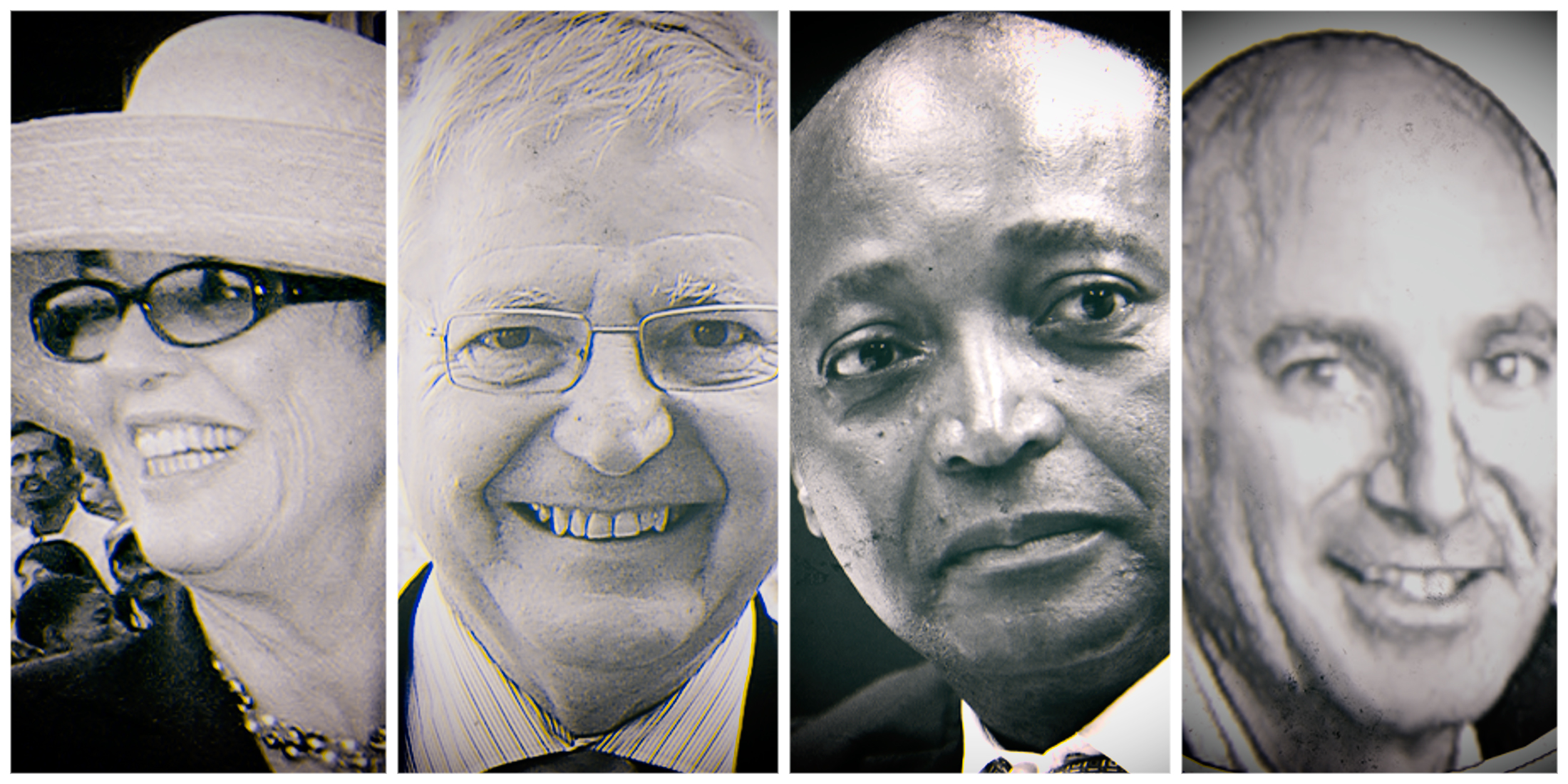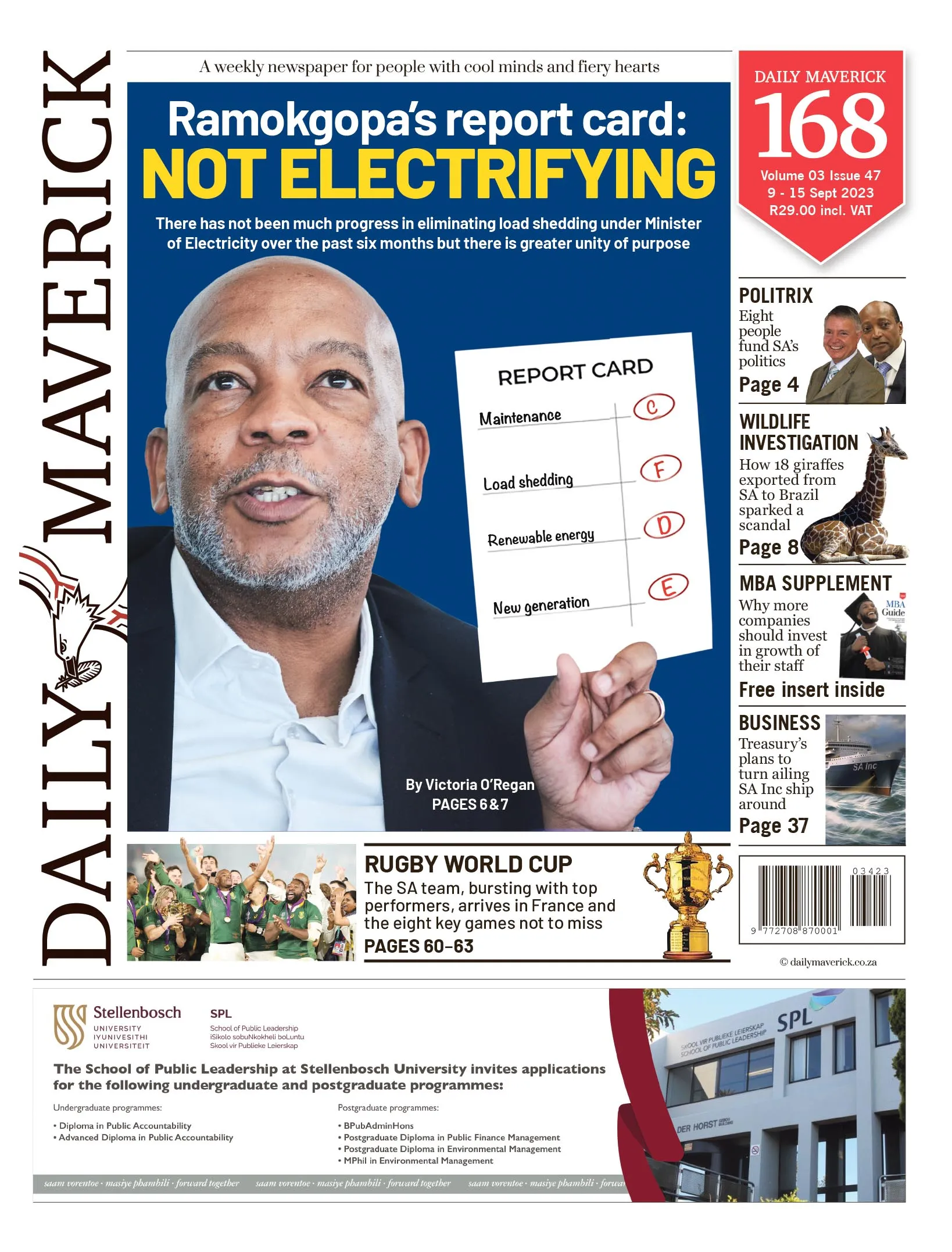In the two years since it became compulsory for political parties in South Africa to report large donations, one thing has been made clear: a very small number of donors keep the local political system moving. Daily Maverick’s analysis of the nine sets of funding disclosures made to date shows that just eight individuals are filling the coffers of local parties.
More astonishingly, half of the top eight political donors in the country come from a single family: the Oppenheimers. Four descendants of mining magnate Harry Oppenheimer — Victoria Freudenheim, Mary Slack, Jessica Slack-Jell and Rebecca Oppenheimer — have cumulatively donated more than R40-million to opposition parties since the beginning of the 2021 financial year.
Of the eight biggest political funders, just one — mining magnate Patrice Motsepe — donates to the ruling party. The ANC’s major source of funds are trusts associated with the party and the mining company United Manganese of Kalahari, which has links to Russian oligarch Viktor Vekselberg.

What influence?
Exactly what level of influence these massive donations buy is unclear, and probably also varies according to the personality of the donors. The Oppenheimers are hands-off funders, for instance. Motsepe is the brother-in-law of President Cyril Ramaphosa, so has the ear of those at the top of power in the ANC.
Of all the donors listed here, the one who appears to play the most active role in shaping the direction of the party he funds is Michiel le Roux, who makes donations to the DA through Fynbos Ekwiteit and related entities.
Le Roux (73) was the founder of Capitec Bank and has been ranked by Forbes as the 17th richest billionaire in Africa. He has close relationships with DA leaders; Helen Zille was reported to have stayed rent-free at his Blouberg house for three months in 2019 after leaving her Western Cape premier’s residence.
Most significantly, however, he was one of three members of a review panel looking into the DA’s electoral decline in 2019, alongside former party strategist Ryan Coetzee and former party leader Tony Leon. Among the recommendations made by that panel: that erstwhile DA leader Mmusi Maimane must go.
The mysterious Mr Moshal
The Oppenheimer granddaughters maintain very low profiles outside of the family pursuits of philanthropy and horse racing, but their surname is recognised — and often evokes strong feelings — throughout South Africa. The same cannot be said for the country’s second-largest political donor, Martin Moshal, who is almost unknown in his homeland.
The 53-year-old from Durban is credited with developing the world’s first online casino platform in 1994. His wealth is almost incalculable, but it probably far outstrips that of many of those who usually feature on the continent’s rich lists. One report, from 2002, suggested Moshal was bringing in R8-billion a year in revenue even back then.
Moshal has a number of philanthropic projects in South Africa and Israel, where he is also recorded as making the third-largest donation in history to the Yad Vashem Holocaust Remembrance Centre.
Where Moshal is domiciled is unclear, but the Australian Financial Review reported in 2022 that, although his venture capital fund Entrée Capital is headquartered in the Isle of Man, Moshal lives “on the exclusive Sydney Harbour row of Camp Cove”. At one point he reportedly owned a seven-bedroom mansion in one of London’s ritziest areas, Hampstead.
Moshal almost never talks to the press, but in August gave a rare interview to the South African Jewish Report on the topic of his political donations. In it, Moshal said he felt it was important to “provide support to all centre-left and centre-right parties”, and indicated that in future he would donate to the Inkatha Freedom Party too.
Terming all the parties he supports “far better than the government we have today”, Moshal told the Report that there is “a strong moral argument for supporting opposition parties if we have the means to do so”.
Political sugar daddy
Motsepe (61), South Africa’s first black billionaire, is alone among the donors in having given money across the political spectrum, from the EFF to the Freedom Front Plus, through his companies Harmony Gold and African Rainbow Minerals. He did so before the November 2021 local government elections, awarding funds on a sliding scale seemingly based on the size of party support.
There is a widespread perception that the Freedom Front Plus must be awash in donations from white Afrikaans people — but to date, its sole disclosure has been the funds from Motsepe.
This raises questions about whether parties are, in fact, complying properly with the reporting regulations. Since the promulgation of the Political Party Funding Act, South African political parties are required to disclose all donations above R100,000 every financial quarter. The EFF, despite having what looked to be a very well-funded 2021 election campaign, has disclosed only a handful of donations — and none from individuals known previously to be EFF donors, such as tobacco smuggler Adriano Mazzotti.
The latest set of political party funding disclosures was released by the Electoral Commission on 31 August. If past patterns are anything to go by, the volume of donations is likely to increase as the 2024 elections approach. With the next national polls likely to be the most hotly contested in South Africa’s democratic history, parties will be starting to work the phones like crazy to raise money ahead of campaign season. DM
This story first appeared in our weekly Daily Maverick 168 newspaper, which is available countrywide for R29.






